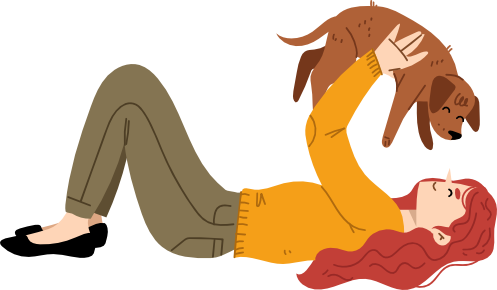Canine Conversations discusses the four steps that they take every day with their dogs to prevent reactivity. Many trainers consider reactivity (dogs that bark and lunge) to be a contagious problem.
Marissa Martino and Kayla Fratt break down how they help keep their dogs relaxed around other dogs.
#1: We Avoid On-Leash Greetings With Other Dogs
- Being on leash reduces a dog’s options.
- Even socially savvy dogs can struggle to communicate when they’re constrained with a leash.
- Humans tend to tense up on the leash, adding extra social pressure accidentally.
- You never know who the other dog is and how he’ll react!
- Exposure isn’t the same as socialization.
#2: Keep It Cool When Other Dogs Lose Their Cool
- Yelling at other dogs (and other owners) is likely to stress your own dog out.
- Your dog is likely to follow your lead, so losing your cool may lead to your dog losing her cool.
#3: Reward Your Dog For Noticing Other Dogs, Pretty Much Always. Especially if the Other Dog is Being Rude.
- Pop a treat in your dog’s mouth whenever you see another dog. Soon, you’ll notice your dog looks up at you when she sees another dog, waiting for a treat.
- If you don’t have treats, praise, pet, or play with your dog to reward her for staying calm around barky dogs.
- Kayla has taught her dog Barley to grab a stick and play with her when other dogs are being rude, helping both of them dispel stress and diffuse the situation.
#4: Block Your Dog’s View of the Street and Put On White Noise when She’s Home Alone
- If your dog keeps “practicing” barking while you’re gone, she’ll keep doing it.
- Barking at people “works” because the people walk by. You’ve got to combat the environment, which is teaching your dog to bark!
- Even if your dog spends much of her day looking out the window, that may be more due to hypervigilance than because she truly enjoys it.

